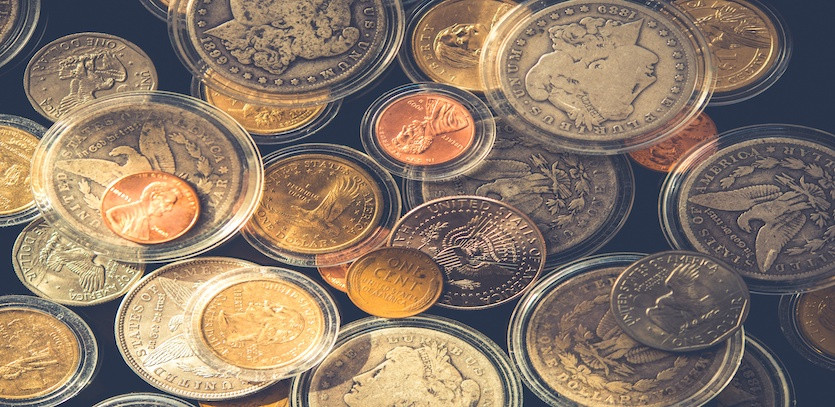The Unique Lure of Collectibles as Investments
Collectibles have a unique appeal as an asset class that offers an alternate investment route, distinct from conventional stocks and bonds. Instead of following market patterns, the value of collectibles like rare coins are driven by a multitude of elements, such as rarity and demand.
As with any collectible, the rarer the coin, the higher its value. Investing in these rarities can unlock substantial profit potential, but patience is key. The process of reaping financial benefits from rare coin investments is typically gradual.
Let’s delve deeper into the advantages and drawbacks of investing in rare coins, and how they can complement your investment portfolio.
Assessing Rare Coins as Investment Opportunities
Historically, rare coins have demonstrated immense profit capabilities beyond the intrinsic metal value they possess. Top-tier coins saw their prices surge by over 1,000% between 1976 and 1980, and by 600% from 1982 to 1989, as documented by Finest Known, a specialist rare-coin newsletter.
While it's clear that investing in rare coins should not replace traditional investments in achieving your financial aspirations, they can add a layer of diversification to your portfolio and mitigate risks.
Over the past few decades, the rare-coin market has undergone significant transformations. Coin grading, a process to verify authenticity and determine standards, was democratized by third-party services in the 1980s, mitigating some investment risks. Moreover, the rise of the internet has empowered investors with access to a wealth of knowledge about coin collecting and buying.
If you're a newcomer to the world of rare coin investments, consider partnering with a seasoned mentor who can guide you in assessing the value and potential future worth of coins. Expanding your understanding through coin shows, reading relevant books and articles, engaging with coin dealers, and participating in coin clubs can be instrumental.
Crafting a Balanced Coin Portfolio
A well-diversified coin portfolio can shield you from market volatility while enhancing your profit potential. Including a mix of U.S. coins, precious metals such as gold bullion coins, and classic gold coins like the double eagle can enrich your portfolio diversity.
However, keep in mind that rare coin collecting isn’t a quick-win strategy. There's a risk-centric strategy known as coin flipping, which involves buying a low-mintage coin straight from the mint and promptly selling it for a higher profit. This approach is fraught with risks, as you could incur losses if the selling opportunity is missed or the market gets oversaturated.
Navigating Market Volatility and Avoiding Bubbles
The rare-coin market isn't immune to price swings. Coin prices are governed by supply and demand dynamics. If a specific coin or series gains popularity, prices might skyrocket, only to plummet later if interest wanes.
Distinguishing Coins from Stocks
Investing in rare coins diverges from stock investments in a fundamental way. While shares of a company are identical in value, the same isn’t true for coins.
Consider two 1913 Buffalo nickels as an example. Even if the coins share the same variations and grading, their value might differ due to subtle differences in appearance. This adds an unpredictable element to rare coin investing.
Embarking on Your Rare Coin Investment Journey
The optimal way to commence your rare coin investment journey is to seek mentorship on evaluating rare coins' worth. It's also beneficial to read topical books and articles, attend coin shows, and become part of coin clubs. Understanding the factors that determine coin value can aid in forecasting potential returns.
People who collect coins are referred to as numismatists, a term encompassing collectors, scholars, and dealers. The American Numismatic Association is a nonprofit organization committed to educating people about coin collecting.
Generally, the value of rare coins tends to appreciate over time, offering substantial gains in many instances. However, no investment comes with absolute guarantees.
The Takeaway
Investing in rare coins can be more intricate compared to buying stocks through a trusted broker. Remain vigilant about the risk of counterfeit or tampered coins, which, according to the Professional Numismatists Guild (PNG), involves altering a coin's surface to mask defects and misrepresent its condition and value.
While experts can almost always spot a manipulated coin, novices may be deceived. Ensure to purchase coins from credible dealers, opting for coins certified by entities like the Professional Coin Grading Service (PCGS) or Numismatic Guaranty Co. (NGC) or one of the three third-party coin grading services.
Investing in rare coins can provide more than just a captivating hobby. It can serve as a potentially rewarding long-term investment strategy, adding an element of diversification to a balanced portfolio.





